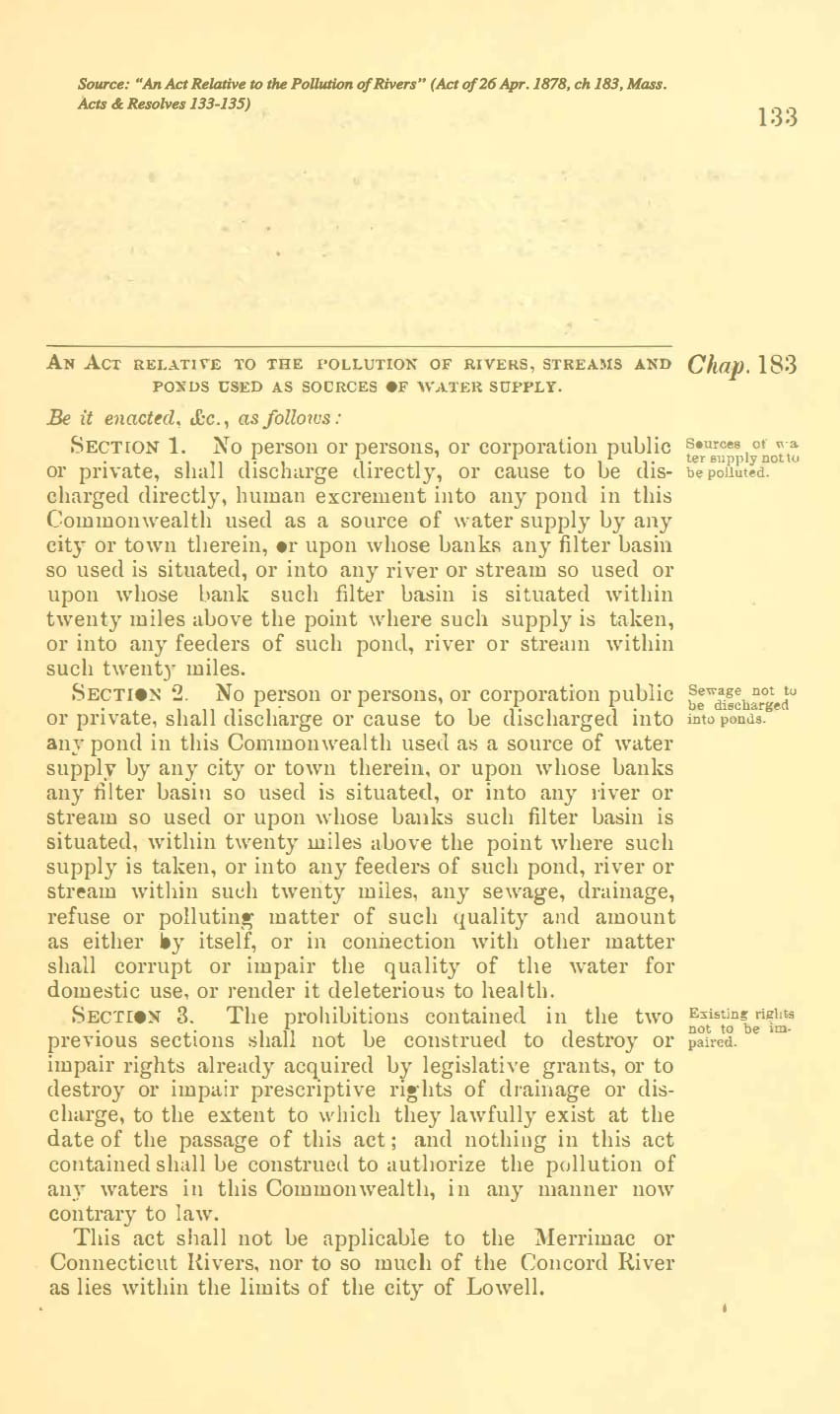During the nineteenth century, industrial corporations used waterways not only for power but also to dump waste. Cities, too, used local streams and rivers for disposing untreated sewage waste. Recognizing the worsening problem of filthy waterways, in 1878 the state of Massachusetts passed a pioneering pollution control law. Although the legislation was limited in scope, manufacturers filed lawsuits to challenge the law and they convinced the governor to significantly weaken the state board of health, the agency designated to enforce it.
What did the 1878 law prohibit? What exceptions did it make? Why did the legislature make those exceptions? Why do you think corporations organized to interfere with the law and its enforcement?
Citation:
“An Act Relative to the Pollution of Rivers” (Act of 26 Apr. 1878, ch 183, Mass. Acts & Resolves 133-135).
Library Item Date:
1878
